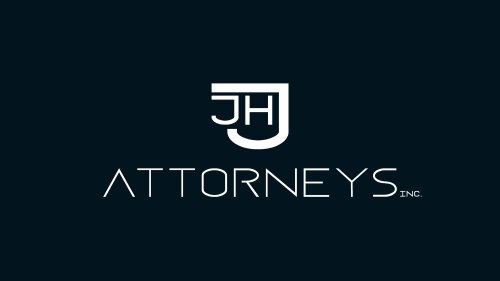Best Natural Resources Lawyers in Bloemfontein
Share your needs with us, get contacted by law firms.
Free. Takes 2 min.
List of the best lawyers in Bloemfontein, South Africa
About Natural Resources Law in Bloemfontein, South Africa
Natural resources law in Bloemfontein-like the rest of South Africa-regulates the use, management, and protection of resources such as land, minerals, water, forests, and biodiversity. Bloemfontein, as the judicial capital of South Africa and the main city in the Free State province, is surrounded by agricultural land, mining areas, and water sources that are vital to the local economy and communities. Legal matters in natural resources often overlap with property law, environmental regulation, and issues related to sustainable development. The law seeks to balance economic growth with environmental protection, ensure fair resource distribution, and protect the rights of communities.
Why You May Need a Lawyer
People and companies in Bloemfontein may require legal assistance with natural resources law for a variety of reasons. Some of the most common situations include:
- Acquiring, selling, or leasing land for mining, farming, or developments that rely on natural resources.
- Securing or contesting rights for water usage or mineral prospecting and extraction.
- Complying with environmental laws applicable to construction, agriculture, and industry.
- Addressing land claims or disputes based on historical dispossession or overlapping interests.
- Dealing with government permits, licenses, and regulatory approvals required for resource use.
- Responding to allegations of environmental harm, pollution, or non-compliance with local or national regulations.
- Interpreting contracts and agreements related to exploitation or stewardship of natural resources.
- Participating in public consultation processes for resource projects or environmental impact assessments.
Due to the complexity and evolving nature of laws concerning natural resources, having a knowledgeable legal advisor is critical to effectively navigate these matters.
Local Laws Overview
Several key laws and regulatory frameworks govern natural resources in Bloemfontein and the broader Free State province:
- Mineral and Petroleum Resources Development Act (MPRDA): Governs all mining and prospecting activities, setting requirements for licenses and environmental considerations.
- National Water Act: Regulates water use, the allocation of water rights, and establishes procedures for the protection of water resources.
- National Environmental Management Act (NEMA): Provides a framework for sustainable management of the environment and sets guidelines for Environmental Impact Assessments (EIAs).
- Free State Nature Conservation Ordinance: Province-specific rules for the conservation and management of local biodiversity and protected areas.
- Land Reform Laws: Address restitution and redistribution of land, which may impact access to or ownership of natural resources.
Key government agencies involved include the Department of Mineral Resources and Energy, Department of Water and Sanitation, and the Department of Forestry, Fisheries and the Environment. Municipal by-laws in Bloemfontein (Mangaung Metropolitan Municipality) can also impact zoning, development, and environmental compliance.
Frequently Asked Questions
What qualifies as a 'natural resource' under South African law?
Natural resources include minerals, water, land, air, forests, plants, animals, and even genetic materials found in the environment or under the ground. South African law treats these resources as the collective heritage of the nation, managed in the public interest.
Do I need a permit to drill for water or mine on my property?
Yes. Both water use and mineral activities are heavily regulated. You will need to apply for the appropriate authorization or permit from the relevant government department before commencing such activities.
How does land ownership affect natural resource rights?
Owning land does not automatically mean you own rights to all resources on or under the land. Mineral rights, for example, are generally vested in the state and require licenses for extraction.
What is an Environmental Impact Assessment (EIA) and when is it required?
An EIA is a formal study to assess the potential environmental effects of a proposed project. It is required by law for many activities like mining, large-scale agriculture, or developments that may affect ecosystems or communities.
How can communities participate in decisions about local resource use?
Many laws require public participation or consultation, especially during application processes for mining rights or major developments. Affected communities have the right to be informed, comment, and sometimes object to proposed projects.
What are the penalties for illegal use or exploitation of natural resources?
Penalties range from fines to imprisonment, depending on the severity of the offense. Activities without proper authorization or causing environmental harm can also result in orders to rehabilitate affected areas.
Can traditional or communal land rights affect resource access?
Yes. Customary and communal land rights are recognized under South African law, and resource decisions often need to consider these rights. Consultation with traditional authorities or community leaders may be required.
What happens if my land is affected by a government-approved resource project?
You may be entitled to compensation or other remedies. The law provides processes for negotiation, compensation, or relocation when land rights are impacted by national interest projects.
Who enforces natural resources law in Bloemfontein?
Enforcement is spread among various entities, including the Department of Mineral Resources and Energy, Department of Water and Sanitation, environmental inspectors (Green Scorpions), and the local municipality.
How do I appeal a decision on a permit or license application?
Most permitting processes include an appeals procedure. You typically submit an appeal to the relevant department and, if unresolved, may pursue the matter through an administrative tribunal or the High Court.
Additional Resources
The following institutions and bodies are useful for guidance, complaints, and additional information regarding natural resources in Bloemfontein:
- Department of Mineral Resources and Energy (DMRE)
- Department of Water and Sanitation
- Department of Forestry, Fisheries and the Environment
- Mangaung Metropolitan Municipality (Environmental Management Division)
- South African Council for Natural Scientific Professions (SACNASP)
- Legal Aid South Africa (Bloemfontein office)
- Environmental justice NGOs such as the Centre for Environmental Rights (CER)
- Local law societies and bar associations
Next Steps
If you need legal assistance on a natural resources matter in Bloemfontein:
- Clearly define your issue and gather all relevant documents (permits, correspondence, contracts, maps).
- Research or contact the appropriate government department for basic procedural information or forms.
- Reach out to a qualified attorney who specializes in environmental or natural resources law; consider consulting local law societies for recommendations.
- If you cannot afford a private lawyer, seek help from Legal Aid South Africa or relevant NGOs.
- Prepare questions and outline your goals ahead of your first meeting with a legal professional.
- Follow up on all legal advice, maintain records, and ensure you meet any deadlines for applications, appeals, or submissions.
Early engagement with an expert can help you avoid costly mistakes, ensure full compliance with the law, and better protect your rights and interests.
Lawzana helps you find the best lawyers and law firms in Bloemfontein through a curated and pre-screened list of qualified legal professionals. Our platform offers rankings and detailed profiles of attorneys and law firms, allowing you to compare based on practice areas, including Natural Resources, experience, and client feedback.
Each profile includes a description of the firm's areas of practice, client reviews, team members and partners, year of establishment, spoken languages, office locations, contact information, social media presence, and any published articles or resources. Most firms on our platform speak English and are experienced in both local and international legal matters.
Get a quote from top-rated law firms in Bloemfontein, South Africa — quickly, securely, and without unnecessary hassle.
Disclaimer:
The information provided on this page is for general informational purposes only and does not constitute legal advice. While we strive to ensure the accuracy and relevance of the content, legal information may change over time, and interpretations of the law can vary. You should always consult with a qualified legal professional for advice specific to your situation.
We disclaim all liability for actions taken or not taken based on the content of this page. If you believe any information is incorrect or outdated, please contact us, and we will review and update it where appropriate.










